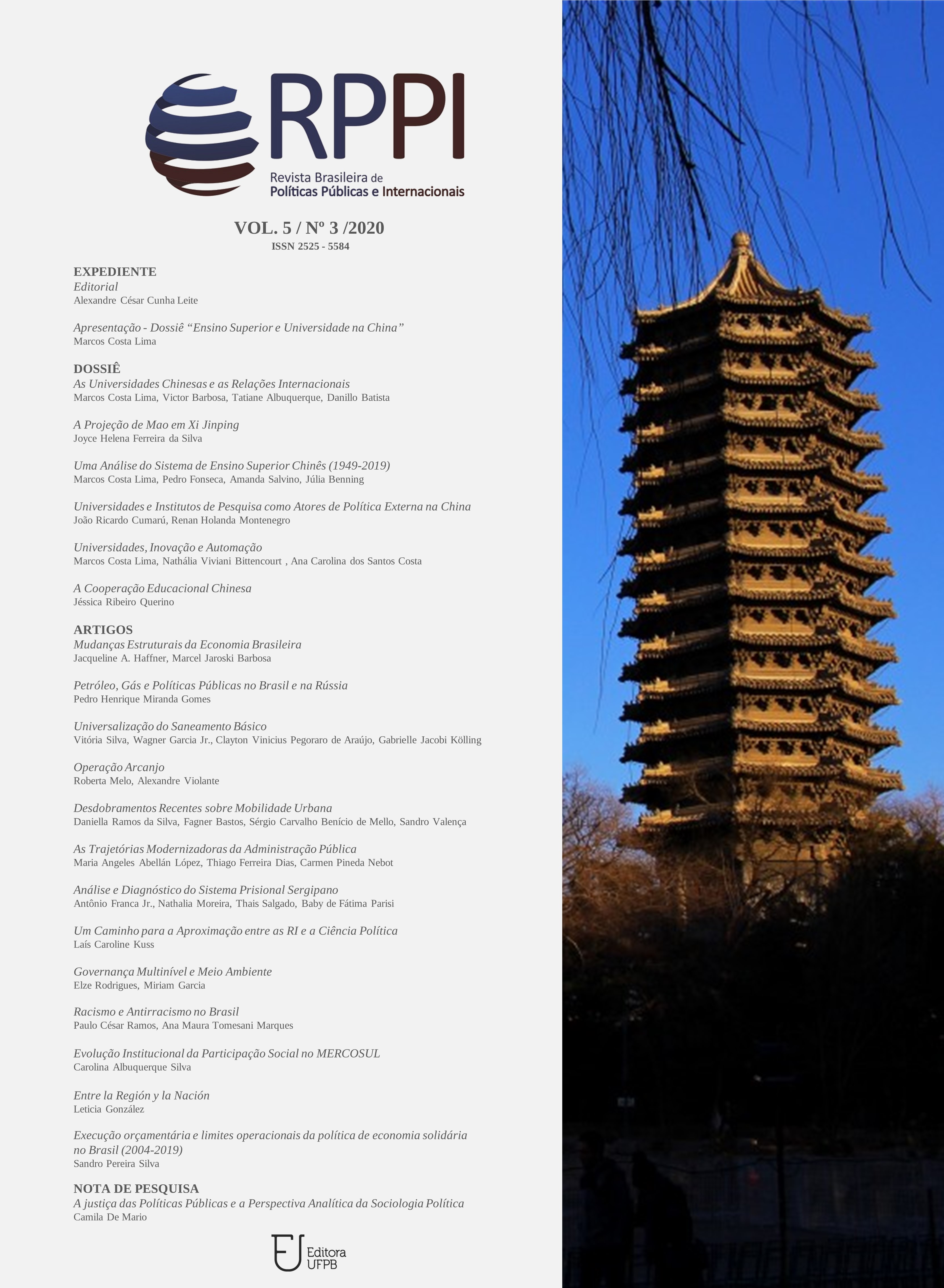Universidades e Institutos de Pesquisa como Atores de Política Externa na China
DOI:
https://doi.org/10.22478/ufpb.2525-5584.2020v5n3.55324Keywords:
china, política externa, processo decisório, universidades, think tanksAbstract
In parallel with the thickening of the international projection of the People's Republic of China, a broad process of decision-making decentralization and proliferation of actors in its foreign policy is underway. As a result, the myriad of issues that the country needs to deal with globally have accelerated the professionalization of specialized bureaucracy, as well as demanded expertise in official advice. This article aims to investigate the role of universities and research institutes in this scenario. To this end, the paper initially presents a brief retrospective of contemporary Chinese foreign policy and an overview of recent trends involving decision-making. Then, we seek to discover how the channels of dialogue between the various Chinese think tanks and the leaders responsible for the actual political implementation work, guiding the discussion through a historical perspective. We hope, therefore, to contribute to recent studies on the complexification of China's international operations and the difficulties of coordination that arise from it.
Downloads
Downloads
Published
Issue
Section
License
Autores que publicam nesta revista concordam com os seguintes termos:- Autores mantém os direitos autorais e concedem à revista o direito de primeira publicação, com o trabalho simultaneamente licenciado sob a Licença Creative Commons Attribution que permite o compartilhamento do trabalho com reconhecimento da autoria e publicação inicial nesta revista.
- Autores têm autorização para assumir contratos adicionais separadamente, para distribuição não-exclusiva da versão do trabalho publicada nesta revista (ex.: publicar em repositório institucional ou como capítulo de livro), com reconhecimento de autoria e publicação inicial nesta revista.
- Autores têm permissão e são estimulados a publicar e distribuir seu trabalho online (ex.: em repositórios institucionais ou na sua página pessoal) a qualquer ponto antes ou durante o processo editorial, já que isso pode gerar alterações produtivas, bem como aumentar o impacto e a citação do trabalho publicado (Veja O Efeito do Acesso Livre).




_.jpg)






.png)


.jpg)
_.png)
